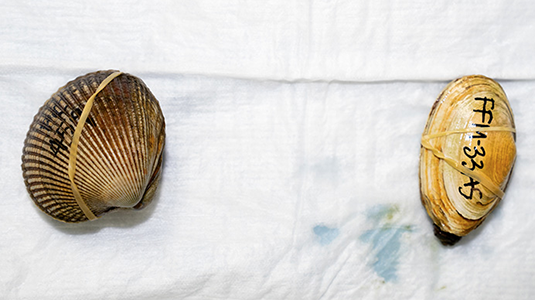||| MIDNIGHT MUTTERINGS by JACKIE BATES |||
We are all, I assume, paying attention to the Senate Hearings for the Confirmation of President Trump’s Cabinet. Also, I assume, we are all noting the difference in this year’s hearings as compared to those of President Trump’s choices when he assumed office in January 2017.
Perhaps we imagine how we might conduct ourselves during the hearings and ultimately vote if we were in the current senators’ shoes. Maybe we even look back in history and imagine how we might have conducted ourselves in other periods of history, say the Holocaust, for example? Which of us would concede that we might have been willing to implicate our friends, neighbors or acquaintances if it meant protecting ourselves or our families from harm? Under what circumstances do we think we could stand up for our values, our beliefs if we could see real or imagined danger? Or, say, in the current situation in the Senate, could we vote our core beliefs if we might lose our next election or even just our committee assignments if we displeased our President? Even if we had publicly supported him, donated to his campaign?
In my mutterings tonight I am treating an enormously complex subject quite superficiality, which is always a bad plan. What I am after is thinking about how much circumstances contribute to behavior, especially under unusual circumstances. To that end, I’m mentioning two studies.
In 1971, Philip Zimbardo, a Stanford professor of psychology conducted the ‘Prison Study.’ Briefly, it involved a group of male undergraduate student volunteers to take one of two roles in what was supposed to be a two week study in a mock prison in the basement of the psychology building. The ‘prisoners’ were stripped of clothes and given just a brief ‘smock’ to wear. You can read (warning, it is long) about the Stanford Prison Experiment here.
Ten years earlier in 1961, across the country, there was another experiment led by Stanley Milgram, PhD, a psychologist at Yale University in which volunteers were told they would be assigned one of two roles. either ‘teacher’ or ‘student.’ In fact the volunteers were all assigned to be ‘teachers’ with ‘students’ played by actors. The ‘teachers’ with the urging of a ‘scientist’ in a lab coat were told to shock the ‘students’ when they gave incorrect answers. This link briefly describes the experiment.
I knew about the Milgram study when it was first reported. However, I learned about the Stanford Prison Study only recently. I’m not sure how I missed such a horrifying study even though I was on the campus when it was conducted. I never met Philip Zimbardo but was aware of him and the work he was doing on shyness, which interested me.
After I became aware of the Milgram study, I became very aware of the effect of authority on all of us, especially on the lives of children and young adults. Those of us of a certain age are aware of corporal punishment that frequently occurred in schools. When I was teaching primary students in Seattle, the principal at one school regularly ‘spanked’ students, most often young male Black kids. While I was there, the rules changed and corporal punishment was forbidden in the district and he resorted to ‘talking’ to the unruly boys. Once I went into the office where he was holding forth to a small Black boy who had fallen asleep sitting up. The secretary, who was my friend, said it wasn’t an unusual response. My next principal was of a much different philosophy. He had teachers send children to his office where they were able to read (or recite from memory) a short book to him. The principal then took a photo of the child with his/her book and posted it outside his office. The difference between the atmospheres of the two schools was palpable.
Growing up and attending both public and religious private schools, the only time I was aware of corporal punishment was a fifth grade teacher, a nun who ‘spanked’ students, usually girls, in front of our class. The girls usually laughed at the nun. I may have been the only student who was shocked.
Much later, in California, I was substituting in the district day care program when the director ordered me to take a four year old boy outside and spank him. When I was reluctant, the director said if she had to do it, she would likely hurt him more. So the boy and I went outside and sat on the step and chatted for a while until we agreed it was time to go back inside. I didn’t know what his infraction was and when I asked him what he had done, he said he didn’t know either. He did know it was a good idea to rub his eyes a little as we went inside. That incident has stayed with me, though I didn’t know who to report it to, as it was ordered by the program director.
On a more current note, while I am watching the confirmation hearings for this term’s Trump cabinet, I was reminded of Trump’s previous term when (in January 2017) I watched a televised meeting in which the new President’s confirmed cabinet was introduced. If I remember correctly, they were seated at a large oval table and each member was introduced with the new title, after which he/she said a few words of praise for the new president. Only General Mattis, new Secretary of Defense, it seemed, demurred from the pattern (order/suggestion). Instead he said his words of admiration for the men and women in the armed forces. Though General Mattis was confirmed with a single dissenting vote, he and the President did not get along well, and Mattis resigned in just under two years. President Trump later claimed he had fired Mattis. Around the same time, several other high ranking officials also left their posts in President Trump’s first term.
**If you are reading theOrcasonian for free, thank your fellow islanders. If you would like to support theOrcasonian CLICK HERE to set your modestly-priced, voluntary subscription. Otherwise, no worries; we’re happy to share with you.**









A couple of additional comments: Philip Zimbardo died October 14, 2024, at age 91. Christine Maslach, who convinced Zimbardo, to end the Prison Experiment early, was Zimbardo’s girlfriend, and later his wife. was with him and their children when he died. Coincidentally, Stanley Milgram and Philip Zimbardo were high school students at the same school in the Bronx and became friends, you can read other reports about Zimbardo’s Prison Experiment on Wiipedia, and the New York Times Obituary of Zimbardo here:
https://www.nytimes.com/2024/10/24/science/philip-zimbardo-dead.html.
Only the proper environmental conditions are required to allow the underlying and natural ‘seed of compassion’ to germinate and grow.
The 14th Dalai Lama
“Maybe we even look back in history and imagine how we might have conducted ourselves in other periods of history, say the Holocaust, for example? Which of us would concede that we might have been willing to implicate our friends, neighbors or acquaintances if it meant protecting ourselves or our families from harm? Under what circumstances do we think we could stand up for our values, our beliefs if we could see real or imagined danger?”
I find your analogy of the moment to be timely, interesting, but lacking in context considering what’s happening today. I sense that unless one was either anti-semitic (at that time), or is Islamaphobic (today), that whatever you would have done during the Holocaust is exactly what you are doing now during the Genocide.
“In a dream I asked him, ‘What can I do if I can’t change it’? And he pointed to the graves and whispered, ‘witness it.'” Rumi